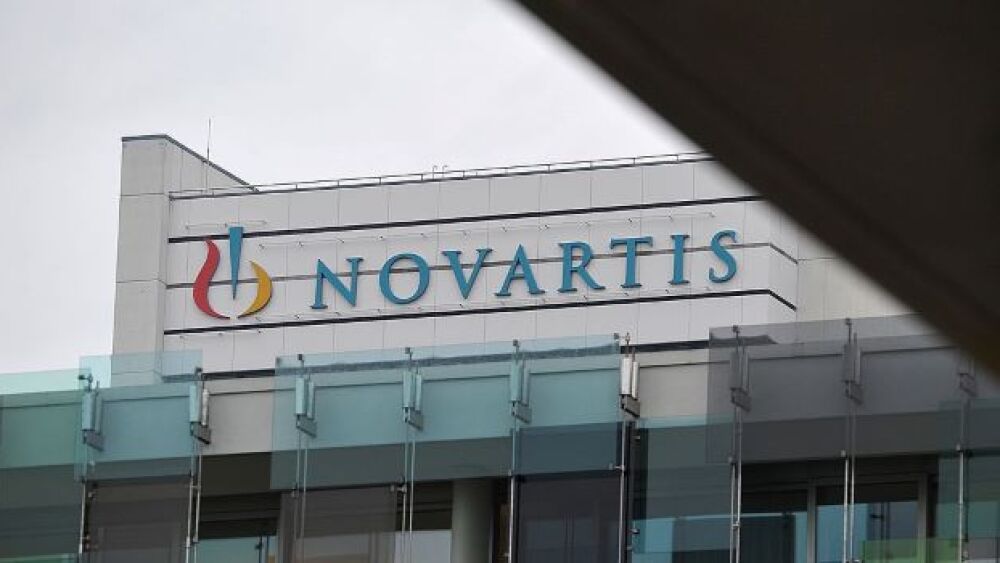Novartis reported Thursday that a Phase III trial of iptacopan met its primary endpoint in paroxysmal nocturnal hemoglobinuria (PNH) - the company’s second win in this indication in as many months.
Image courtesy of Getty Images
Novartis reported Thursday that a Phase III trial of iptacopan met its primary endpoint in paroxysmal nocturnal hemoglobinuria (PNH) - the company’s second win in this indication in as many months.
PNH, a rare and severe blood disorder of the complement system, affects 10 to 20 people per million worldwide. Although it can develop at any age, it is often diagnosed in people 30-40 years old.
PNH results from a mutation in bone marrow cells that grow into red blood cells, white blood cells and platelets. The mutation causes RBCs to be susceptible to early destruction by the complement system. This leads to anemia, blood clotting, fatigue and other debilitating symptoms.
In the Phase III APPOINT-PNH trial, a significant percentage of patients receiving the drug hit a meaningful hemoglobin-level increase of 2 g/dL or more from baseline without requiring blood transfusions at 24 weeks. This was the primary endpoint of the study.
The APPOINT-PNH trial “provided us with broader evidence on the efficacy and safety of iptacopan for complement-inhibitor-naïve patients with PNH,” a Novartis spokesperson told BioSpace Thursday.
This is the second positive Phase III topline readout for iptacopan in PNH.
Second Win in as Many Months
In October, Novartis announced topline data from the pivotal Phase III APPLY-PNH trial, which hit two primary endpoints. Iptacopan was evaluated against AstraZeneca subsidiary Alexion’s Soliris (eculizumab) and Ultomiris (ravulizumab) in PNH.
At the time, a Novartis spokesperson told BioSpace the results “demonstrate iptacopan is superior to anti-C5 therapies in providing clinically meaningful increases in hemoglobin levels without the need for blood transfusions in PNH patients with residual anemia despite prior treatment with anti-C5s.”
Iptacopan is an investigational first-in-class, oral targeted factor B inhibitor of the alternative complement pathway. In addition to being studied in PNH, it is being developed for other complement-mediated illnesses, including kidney diseases C3G, IgAN, atypical hemolytic uremic syndrome, membranous nephropathy, lupus nephritis and blood disorders immune thrombocytopenic purpura and cold agglutinin disease.
The spokesperson told BioSpace Thursday that the drug “acts upstream of the C5 terminal pathway, preventing not only intravascular but also extravascular hemolysis in PNH.” In doing so, iptacopan targets a key part of the biology responsible for PNH. If approved, it could potentially offer an oral monotherapy option, the spokesperson said.
The drug received Breakthrough Therapy Designation from the FDA and orphan drug designations from both the FDA and European Medicines Agency in PNH and C3G.
A Big Week for Novartis
The PNH results are the third trial announcement Novartis made this week.
On December 5, the Swiss pharma reported topline results for Pluvicto for PSMA-positive metastatic castration-resistant prostate cancer (mCRPC). The drug is approved in the U.S. and other countries for adults with PSMA-positive mCRPC who have previously received ARPI and taxane-based chemotherapy.
On December 7, Novartis announced results from the RIGHT Choice Phase II trial of Kisqali (ribociclib) with endocrine therapy compared to combination chemotherapy as first-line therapy for pre- and perimenopausal patients with HER+/HER2- metastatic breast cancer, which also included patients with severe organ dysfunction known as visceral crisis.





